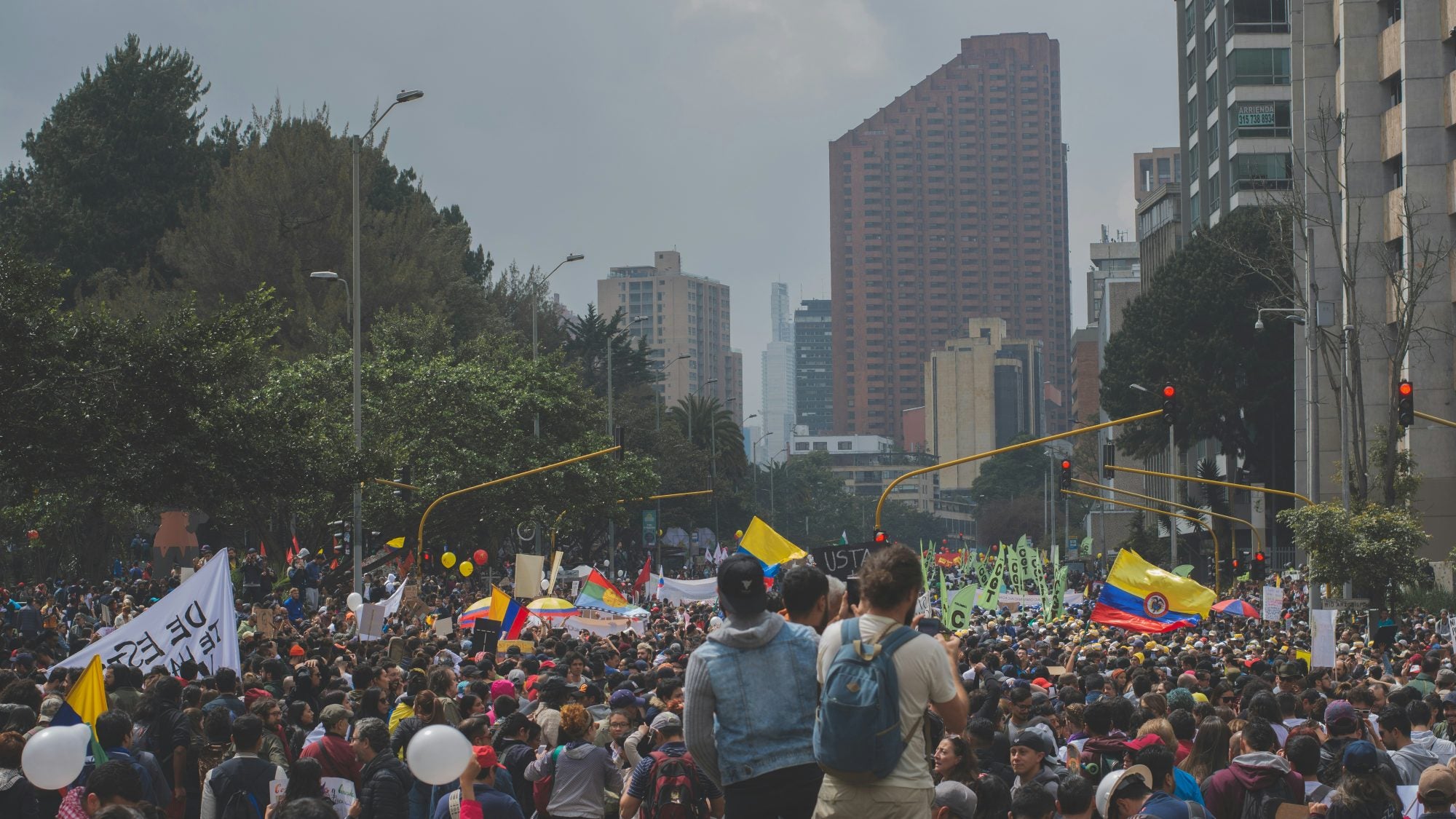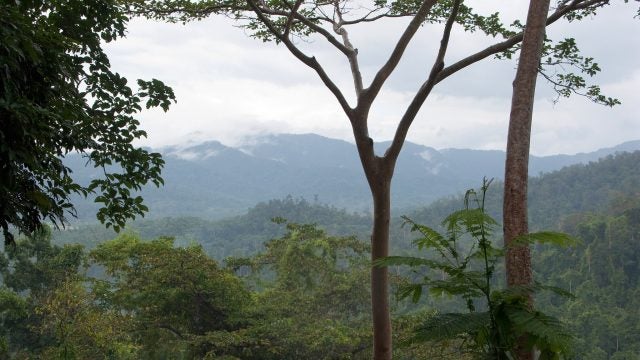
Title: Contesting Electoral Fraud in Venezuela: Implications for the Future of Democracy in Latin America
In this interview, GJIA sits down with Isabel de Saint Malo to discuss the fraudulent Venezuelan elections and the future of democracy in the country. The former Panamanian Vice President and Minister of Foreign Affairs further contextualizes the ongoing events in Venezuela within the larger state of political unity in Latin America and democratic backsliding globally.
GJIA: How has Maduro’s leadership eroded democratic institutions in Venezuela since he began his presidency 11 years ago, and how have those changes culminated in the conditions surrounding the most recent elections?
Isabel de Saint Malo: Democratic deterioration in Venezuela has been a linear process, with several events pushing the country into authoritarianism. For a long time, Venezuela was a prosperous country with strong democratic institutions—a democratic light in the region. The process of democratic erosion only began when Hugo Chávez took office in 1999. Like the authoritarian regime in Nicaragua, Chávez came to power through free and fair elections. Even though his administration slowly restricted its opposition and curbed civil liberties, it kept the facade of a democratic government. Unlike in the Chávez era, however, the current Maduro era has been less effective at pretending to be anything other than an authoritarian regime. Apart from some goodwill following the 2023 Barbados Agreements, where Maduro’s government agreed to facilitate the democratic electoral process in exchange for some retracted sanctions by the United States, the Maduro government has dropped the democratic facade. The slow erosion of democracy has come to a head and peaked during the 2024 election cycle.
The entire electoral process reflected a bias towards the incumbent president, specifically in regard to the registration process, the exclusion of overseas observers, and the unequal campaign conditions. Most notably, Maduro’s government prevented Maria Corina Machado, the leading opposition leader, from running. Following this, the Electoral Commission prevented other candidates from running, and finally, the Supreme Tribunal of Justice ruled the opposition’s primaries process illegal, suspending the results of the vote. This is how career diplomat Edumundo González ended up as the opposition candidate. Even then, the Maduro regime lost blatantly. The opposition rallied so much support that even Maduro’s traditional base did not vote for him.
Now, the regime fully and openly controls the country’s political institutions, closing off all channels for political dissent and restricting civil liberties. Maduro is using state resources, such as the military and judicial system, to disrupt any possibility for the opposition to organize. This repressiveness is directed not only against opposition leaders but anyone who dares to oppose them. Following the election, the regime constructed a highly restrictive regulatory environment that made it impossible for the media to cover the elections or the regime’s human rights violations and social reality with journalistic independence. The Venezuelan people cannot currently document their oppression, and it is even becoming increasingly difficult for international organizations like Human Rights Watch to monitor the deterioration of human rights, civil liberties, and democracy in the country.
Despite it becoming increasingly harder to document the horrors of Maduro’s, his electoral loss was clearly shown by the United Nations Panel of Experts, the Carter Center, and the Inter-American Commission on Human Rights. Even then, Maduro is still in power, emanating a looming and terrifying message to the Americas and democracy as a whole: “It is possible to lose elections and remain in power.” This is the reality we have to deal with.
GJIA: Looking to the future, what options remain for opposition figures and movements in Venezuela? Is there still hope for political resistance or will opposition have to find forms of dissent outside democratic institutions?
Isabel de Saint Malo: While there are possibilities, options are very limited. Since 2023, this new wave of authoritarianism in Venezuela has severely repressed individuals. There are over 1,600 political prisoners in Venezuela right now, showing that the regime will stop at nothing to crush dissent, criminalizing any individuals who oppose the regime. Even those who are not currently in Venezuela, and could stir resistance internationally, fear for the lives of their families who remain in the country. For example, the government arrested the son-in-law of Edmundo González, the opposition candidate in the most recent elections. And while there are many opposition members raising awareness of the regime’s actions internationally—which is incredibly valuable—it is unlikely that this work will translate into other countries taking measures. Just recently, Chile announced that it will not recognize Edmundo González and is willing to reestablish diplomatic relations with Venezuela. Even if the larger international community decided to cut diplomatic relations with Maduro’s government, there is no guarantee that it will lead to a tangible impact. Juan Guaido, the opposition candidate from a contentious election back in 2019, received official recognition from over fifty countries for several years, yet nothing came of it. Resistance must occur, and there is room for positive change to happen, but the window is very narrow.
GJIA: How do you think the different responses from Latin American countries reflect the state of political unity in the region? More generally, what does it say about democracy in Latin America?
Isabel de Saint Malo: The implication of the fraudulent election is terrible. The responses to the crisis in Venezuela have been varied and weak, but that is not the only area where Latin America shows a clear lack of unity. For a long time, Latin America has struggled to join forces or, even more fundamentally, to reach agreements on major and basic issues. Though we are relevant globally in terms of commerce, Latin America is a lot less relevant when evaluated on a country-to-country basis—apart from Brazil and Mexico. For small and mid-size countries in particular, it is one thing to talk about individual Latin American countries, and it is another thing to mention Latin America as a bloc when it comes to global relevance. However, the lack of unity represents an obstacle to our regional potential as an active player in international affairs. Right now, we have a business card of unaligned positions and are disassociated agendas in almost everything. This is not helpful to our causes and interests, but it is the reality.
GJIA: Political polarization in Latin America has become a very prevalent issue in recent years. Do you see a way of achieving economic unity despite the political disunity of current Latin American relations?
Isabel de Saint Malo: Political unity is not a necessary precondition for economic unity. If one looks at the history of the European Union, which is by far the most advanced supranational union, it began by reaching agreements regarding coal and steel. In the aftermath of the Second World War, European countries realized how important those resources were to war and reached an agreement on their production. On top of this very solid agreement, they started building other agreements, particularly on the economic front. The European Coal and Steel Community transformed into the European Economic Community and later moved towards political unity. Taking into consideration this European example, the political polarization found today in Latin America does not necessarily need to hinder agreements on economic issues. The region needs effective leadership and a better understanding of alignment in order to achieve economic unity. Then, Latin America can build into a bloc with strong voting power and a clear agenda.
GJIA: What role do you think international actors, institutions, and major geopolitical blocs play in influencing democratic change in Venezuela?
Isabel de Saint Malo: Many foreign institutions, organizations, and countries play a role in Venezuelan politics. The Maduro regime has evidently received support from China, Russia, and Cuba. These countries provide the regime with invaluable material capabilities and intelligence for its survival against internal opposition. Moreover, criminal organizations also play essential roles for the government. Colombian leftist guerrilla groups, namely the National Liberation Army, are allowed to operate in some parts of Venezuela and in exchange control illegal mining activities. On the other hand, countries like the United States, Canada, Panama, and the European Union have pushed for democracy in Venezuela by placing targeted sanctions on key Venezuelan officials for corruption and other offenses.
GJIA: How do these events in Venezuela speak to a growing trend of global democratic backsliding?
Isabel de Saint Malo: With indices year after year, groups like Freedom House, the Economist Intelligence Unit, and V-Dem have established that democratic backsliding is a growing global phenomenon. Using different indicators, these organizations have seen an increase in autocracies and a decrease in freedoms. In Latin America, the Latinobarómetro—an annual public opinion survey—has consistently shown signs of democratic erosion across the region. In 2023, only forty-eight percent of Latin American citizens expressed support for democracy as a system, marking a fifteen percent decline since 2010. Since then, there has also been a steady rise in the share of respondents indifferent to regime type: rising from sixteen percent in 2010 to twenty-eight percent in 2018 and 2023. Interpreting these trends requires a close examination of democracy in relation to development. Democracy has clearly failed to meet the everyday needs of citizens, and when people feel excluded from opportunity, they understandably become indifferent to the regime type. This growing disillusionment is also reflected in the increasing openness to authoritarianism. According to Latinobarómetro, the share of Latin Americans who are open to an authoritarian regime rose from thirteen percent in 2010 to seventeen percent in 2023. What has happened in Venezuela is not an isolated event; it exists within this bigger process of democratic deterioration. This new chapter in this larger process is most troubling: Maduro has proved that one can lose an election and stay in power.
. . .
Isabel de Saint Malo is the Former Vice President and Minister of Foreign Affairs of Panama (2014 – 2019). She is a former Fellow of Harvard University’s Advanced Leadership Initiative and of the Institute of Politics. She currently serves as a member of the Board of Trustees of the International Foundation for Reporting Standards (IFRS). She has led numerous Electoral Observation Missions for the Organization of American States during Presidential Elections in Latin America.
This transcript has been lightly edited for clarity and length.
Interview conducted Gui Lima. The views expressed in this article are solely those of the author and do not necessarily reflect the views of the Georgetown Journal of International Affairs, Georgetown University, or any of their affiliates.
Image Credit: Ricardo Arce, Unsplash Content License, via Unsplash.
Recommended Articles

Cruises have increasingly become a popular choice for families and solo travelers, with companies like Royal Caribbean International introducing “super-sized” ships with capacity for over seven thousand…

In March 2025, widespread protests erupted across Türkiye following the controversial arrest of former Istanbul Mayor Ekrem İmamoğlu, an action widely condemned as politically motivated and…

In this interview, GJIA sits down with Jojo Mehta, Co-Founder and Chief Executive of Stop Ecocide International, to discuss the global movement to codify ecocide as an international…